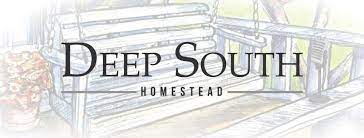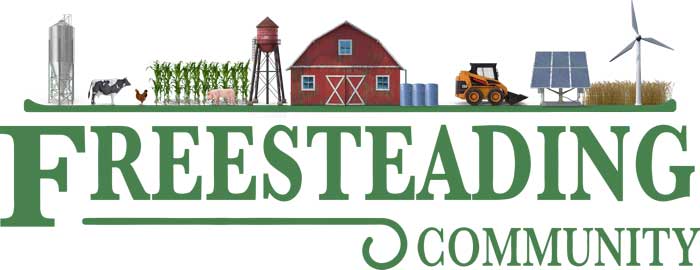
Off grid newbie
-
Off grid newbie
Posted by HugForYourBelly on April 6, 2023 at 5:27 pmWe are moving in 30 days to our off grid Homestead. If you have done this before what is the 1st thing you set up? We have a well and Creek so water is set. Would love any advice
Hippiemimi replied 1 year, 9 months ago 16 Members · 21 Replies -
21 Replies
-
We moved 25 years ago, now I wish we had gotten fruit trees planted back then, maybe even a woodlot.
-
There is so much to look at and think of. Almost everything I did here in the early years I wish I had done differently, we’re 15 years in living off grid now. One of the first things to remember is the season you move or first seasons you’re there aren’t the only seasons you’ll have to deal with. One of my biggest regrets was clearing all the way to the road and not leaving a sight break! Granted my road may see 50 different vehicles in a year, but I doubt it.
-
I have not done this. I’m jealous! This is a goal of mine. I would make sure the basic needs are there first (water, shelter, heat, food).
-
Thanks!!! Truth be told, I’m both super excited and nervous all at once. Its sure to be a change from living in the city for 4 years.
-
-
Agree with Ozark-kat trees are the first priority. They take years to mature, and since you have water they will be easier to care for. We planted tree groups in several areas because sometimes the deer or wildlife will attack one area over another one. Blessings on your new journey.
-
May I ask where you got you got your Ozark-Kat tree’s? I would love to plant some if I could. Thanks!
-
-
Is there anything on the property besides the well and creek? Any kind of infrastructure at all? If no house, barn, outbuildings, your next priority should be shelter and sanitation, which can, at minimum, be a tent and an outhouse (if allowed) or composting toilet. Some areas require (mandatory, immediately) a septic system and working toilet or you WILL get booted off if you try to live there without those. So you’d want to check that, if you don’t already have a house on the property.
If there’s no house at present, and local regulations will allow, I strongly recommend living in temporary housing for a year before you decide where to put your permanent house. That will allow you to figure out the best locations for a garden/orchard (be a shame to plop the house down on your best garden spot); where the sun and prevailing winds are so you can take advantage of them or mitigate their effects as necessary; potential flood-prone areas or wet spots; your best work path for taking care of everything (use permaculture zones — zone 1 is closest to the house and includes things that need constant attention, like the kitchen garden; zone 2 is next out and might include dairy animals and chickens, and maybe the berry patch; zone 3 is out yet a little farther, and so on to zone 5 which is unmanaged wilderness. You can find more complete explanations of these zones in various books and websites. Include things like barns, workshops, and other outbuildings as you are figuring out your zones). All too often people jump onto a piece of property and start building, and then realize they’ve made a lot of extra work for themselves by not arranging everything efficiently — and when you are doing chores daily or twice-daily, a lack of efficiency can add a lot of extra hours to your work load over the course of a year.
-
Our land is raw land so we’re in an RV. First thing we set up was a place to park/access.
Water was IBC totes we filled up the road until rain systems could be set up.
Compost toilets were set up next with the requisite compost station.
Generator was set up to charge the RV battery as needed until the solar panels could be set up.
Grey water is redirected toward future forage tree area as needed.
Garbage is a trip to the county landfill (free to county residents).
We established internet via a mobile puck and tethering with our phones. Check area coverage maps and test before you sign contracts.
If you have kids, look into homeschooling regulations or online school options.
What are your necessary “utilities”? What’s available? What do you need to do for yourself? What do you WANT to do for yourself?
-
✅ water
Access
Infrastructure (house, outbuildings, fencing, other utilities, woodcutting for heat/cooking).
-
Also do not forget your septic. You may want to have the area tested where you want a septic system. Not all areas can have a septic.
You will want to have an area tested down hill of your proposed future home site in order to get gravity flow.
-
Great question and great points being made. We have been planning and “practicing” this very thing where we live. We have been collecting tools and equipment for development on a 6 acre piece WAY out in the sticks. 1-1/2 hours from civilization and the store. The rule of thumb for us is take the 4WD and a chainsaw just to get in. I mention this to help better explain partly why we are doing things the way we are. We currently live in a neighborhood and plan to keep this place as we work on the other. Perhaps a temporary shelter you can be relatively comfortable in is a good first step in my mind. A travel trailer or motor home already set up might be a great way to facilitate your stay in various spots on the property. As others have mentioned this will give you a feel for the land and help you to discern where you want and need permanent infrastructure. Check out all four seasons before breaking ground on something permanent. Temporary shelter and equipment doesn’t have to be new of course. We have had our property for a couple years now and I like to go up there on various occasions in various weather conditions to see where the sun, wind water flow in the seasonal stream reacts to high rain events. We purchased a foldable building that makes a 20′ x 20′ space for a temporary building either to be permanent or make a guest house, storage or workshop down the road. This building is the same size as a 20′ shipping container and can be lifted off a trailer via pick points on the top of the frame or moved with a forklift. Very mobile. We have picked up a couple shipping containers which make durable storage and are also mobile. For years now we have been collecting equipment such as a dump truck, excavator, dozer, backhoe, box truck which I set up as a mobile shop, equipment trailers, fuel storage and next week a telehandler in order to do most of the work ourselves and make for flexibility. Tomorrow we have 40 deep cycle batteries swapped out of a communications tower. Been thinking about water collection so shopped around and picked up a 3000 gallon milk tank from a dairy going out of business. Trailers and equipment come in handy for you to acquire deals and go and get them. Our thought is tangible assets will help with independence, bartering and with the way of the dollar using value daily having the “stuff” is better than money in the bank. Anyway, perhaps a little different perspective but things to ponder along with the other comments. Hope this augments the other comments and helps you to, at a minimum, consider these things or who might be around to help or hire.
-
The first thing you should do, if you haven’t already, is to put up a gate on the entrance road(s).
-
I agree with all. I would also add in a wood cook stove if you can possibly do that. It’s great for heating and cooking until you can get set up with appliances and a better airtight woodsove. I have mine and I’d never live without it. It heats our bath water, dish water and laundry water and super wonderful for cooking and baking once you figure it out. I think everyone needs one to be completely self sufficient. No gas no propane no electric no solar. Just wood. I also use mine for dehydrating over.
Log in to reply.
